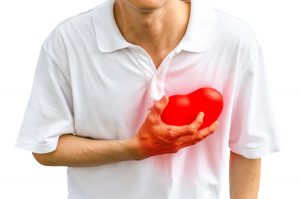
 Sudden, intense chest pain that unexpectedly brings you to your knees – isn’t that how heart attack is shown in movies? In reality, a heart attack can be very subtle, especially in women. If you are experiencing symptoms, it would be a fatal mistake to ignore them. You would need prompt medical attention. Your doctor will ask about your symptoms. To make a diagnosis and draw up a suitable treatment plan, your doctor will consider your age, family history, medical history, overall health, and Cardiac Risk Markers.
Sudden, intense chest pain that unexpectedly brings you to your knees – isn’t that how heart attack is shown in movies? In reality, a heart attack can be very subtle, especially in women. If you are experiencing symptoms, it would be a fatal mistake to ignore them. You would need prompt medical attention. Your doctor will ask about your symptoms. To make a diagnosis and draw up a suitable treatment plan, your doctor will consider your age, family history, medical history, overall health, and Cardiac Risk Markers.
What are Cardiac Risk Markers?
The cardiac risk markers profile is usually prescribed for people with a family history of cardiac disease or a high prevalence of cardiac disease at a young age. It helps in the early diagnosis of a cardiac disorder that can help with the overall prognosis.
The cardiac risk markers profile estimates the levels of cardiac risk markers in the body to know how efficiently the heart is functioning. It also measures the lipids in the body. If the lipids are at an abnormal level, it increases your risk of a heart attack or other severe heart conditions.
What Is a Heart Attack?
Your heart needs oxygen to survive and carry out its primary function. When the blood flow that brings oxygen is severely reduced or gets completely cut off due to a blockage, the individual experiences a heart attack.
Risk Factors
The following factors increase the risk of heart attack:
- Family history of heart diseases
- Cigarette smoking
- History of heart problem or a pre-existing heart disease
- High LDL-C
- Overweight or obese
- Not being physically active
- Unhealthy diet
- Hypertension
- If you’re a male of 45 years and above or a female of 50-55 years or older
- Prediabetes or diabetes
Causes of Heart Attack
The causes of a heart attack include the following:
When the coronary arteries that supply the heart muscle with blood flow are narrowed because of fat build-up, cholesterol, and other substances, they form a plague. This plague gradually narrows the arteries, causing obstruction of blood flow to the heart muscle. This is called atherosclerosis.
Ischemia is a common cause of blocked coronary arteries. When the heart muscle doesn’t get enough nutrients and oxygen, it causes damage or death to a part of the heart muscle. This leads to a heart attack.
Warning Symptoms of a Heart attack
Learning these signs can help you catch the symptoms early. Some of the early signs you need to watch out for are:
- Chest discomfort is characterized by uncomfortable pressure, fullness, squeezing, or pain.
- Discomfort in the jaw, back, stomach, neck, or one or both arms
- Shortness of breath
- Lightheadedness
- Breaking out in a cold sweat
- Nausea
If you see any of these heart-related symptoms, seek prompt medical attention to prevent permanent heart damage or possibly death.